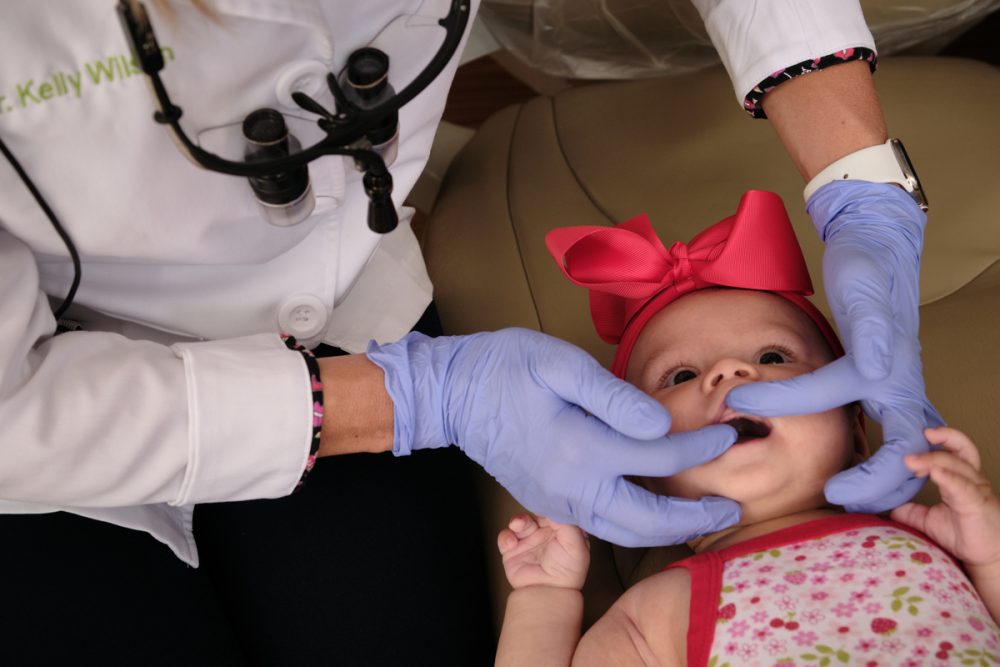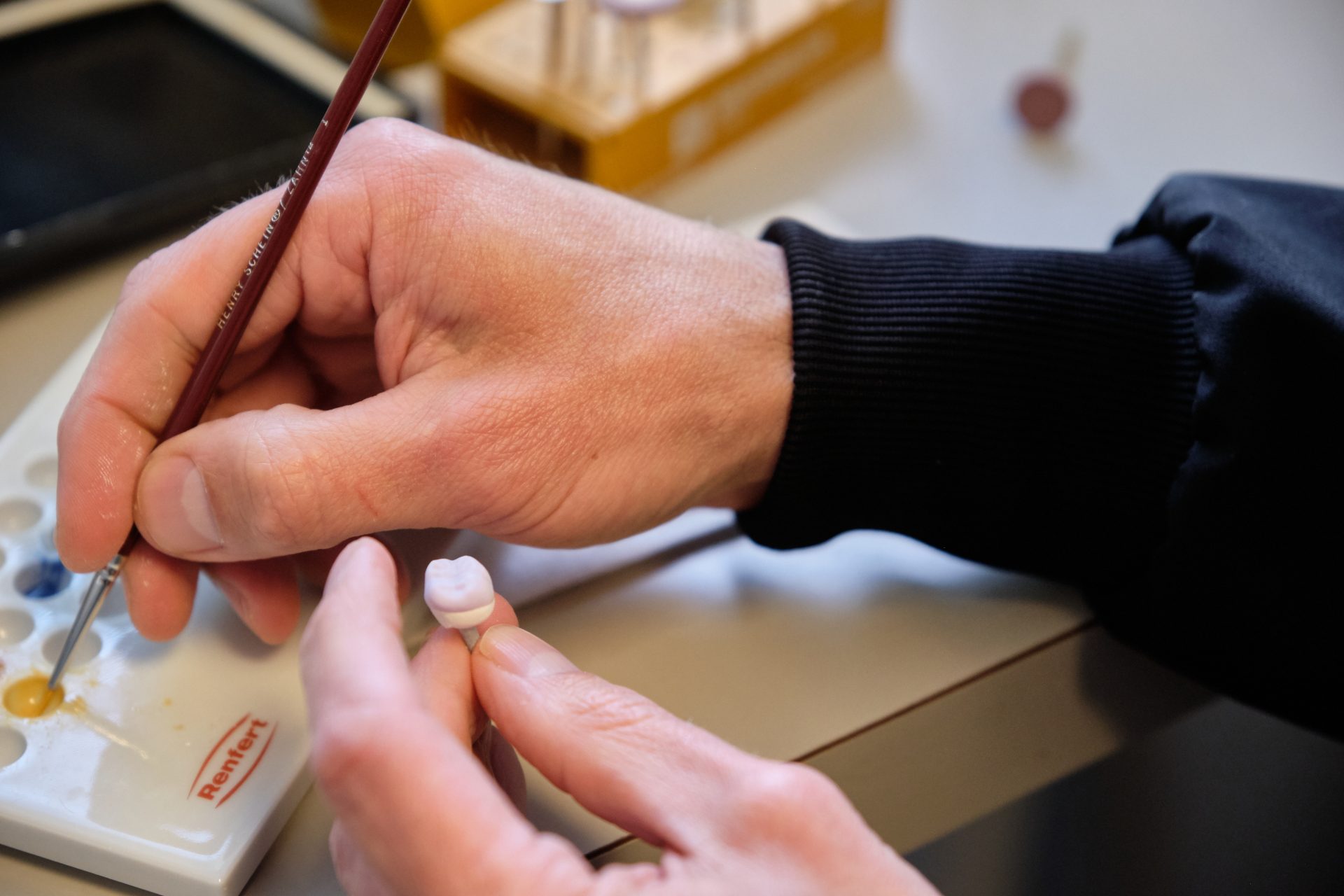
Signs of Tongue Tie
May 22, 2023
Crowns vs. Filling: Which One is Best For You?
June 30, 2023Key Takeaways:
TMJ Disorder:
Jaw pain can be caused by TMJ disorders, leading to symptoms like jaw tenderness, headaches, and ear pain.
Tooth Grinding (Bruxism):
Grinding or clenching teeth, often due to stress, can lead to jaw pain, worn teeth, and even headaches.
Other Causes:
Jaw pain can also stem from injuries, infections, cavities, or impacted wisdom teeth, and may require dental intervention.
One of the most common questions patients ask us is, “What causes jaw muscle pain?” Since jaw pain can originate anywhere in the teeth, gums, muscles, or jawbone, the answer varies depending on the cause of the pain.
Finding the source of your jaw pain requires personalized dental care and an examination. We hope this article helps you get started on the journey of understanding the causes of jaw pain and ultimately finding relief from your pain.
Common Causes and Symptoms of Jaw Pain
TMJ Disorder
TMJ disorder is a common cause with symptoms including tenderness that may feel like a toothache, headache, or even an earache—the temporomandibular joint acts as a hinge connecting your jawbone and skull. Sometimes genetics, trauma, or arthritis may be the cause. More specific symptoms, as outlined by the Mayo Clinic, include:
- Jaw tenderness
- Pain when chewing, possibly with a clicking sound
- Aching or tenderness in the face
- Jaw pain, especially around the temporomandibular joints
- Pain or tenderness near the ear
- Ear ringing or dizziness
Tooth Grinding, AKA Bruxism
TMJ disorders and Bruxism or tooth grinding are often connected, though it is possible to grind your teeth or clench your jaw without a temporomandibular disorder. The tension from clenching your jaw may also cause jaw pain.
People suffering from Bruxism often feel tension in their jaw and grind their teeth during sleep. These people often have other sleep disorders like snoring and sleep apnea. If left untreated, teeth grinding can lead to prematurely worn down teeth, misalignments, headaches, broken or cracked teeth, increased vulnerability to decay, and jaw pain. Often the solution is to wear a mouth guard while sleeping to limit the damage to the teeth and to minimize the impact of clenching. Since people often clench and grind when stressed, stress management techniques may also help you stop grinding your teeth. But it is important to know if you have sleep disordered breathing: snoring, apnea, or mouth breathing, before getting a grind guard since it may not be the best choice of appliance for you.
Injury or Trauma to the Jaw
Sometimes jaw pain results from trauma or injury to the jaw bone. This may range from a broken bone or dislocated jaw to a minor fracture. If you experienced an accident or suspected you might have a jaw injury, contact your dentist to schedule an examination.
A cavity or Other Oral Infection
In addition to these causes, infection, abscessed teeth, and cavities may also cause jaw pain. In this case, treating the root cause of the cavity will most likely end the pain.
In the case of an infection, your dentist may first aim to relieve the immediate infection, but there may be underlying oral health issues to address. For example, if the infection came from untreated gum disease, your dentist may prescribe a series of treatments and also revisit your oral health habits to prevent future infections.
Impacted Wisdom Teeth
The wisdom teeth are deep in the back of the mouth. Sometimes problems with wisdom teeth result in jaw pain and discomfort. Depending on the specifics, your dentist may refer you to another specialist, like an oral surgeon, to have your wisdom teeth extracted.
Other Health Issues
These are just a few of the many potential causes of jaw pain and discomfort. Other causes may have nothing to do with the jaw but may be a result of referred pain. Some non-dental issues that can cause jaw pain include sinus problems, cluster headaches, tumors, and even a heart attack.
Many of these conditions are serious and will require care from a doctor as well as your dentist. Be sure and discuss the full range of your symptoms since some of these issues may be challenging to diagnose without that information.
Just like it is crucial to keep up with your “routine” dental exams and cleanings, we also urge you to keep up with your routine medical examinations. Seeing your doctor as recommended means it is less likely for medical issues that can cause severe or chronic pain to progress unnoticed.
When to See Your Dentist for Jaw Pain
Sometimes jaw pain can be in the form of a tension headache. In the absence of other symptoms, you may be able to find temporary relief using over-the-counter pain medications. However, if pain persists or is associated with other concerning symptoms, please talk with your dentist or healthcare provider.
Many sources of jaw pain are treatable once your dentist identifies the source of the pain. For example, jaw pain from a deep cavity may go away once that cavity is filled. Jaw pain from Bruxism may go away after using a mouth guard and following the treatment plan recommended by your dentist.
When preparing for your visit, consider the following:
- Note where you feel the pain and the severity of that pain.
- Is it more painful when you do certain activities? For example, does it hurt most when you wake up or while eating?
- What other symptoms are you experiencing (even if they don’t seem related)?
- How is the pain impacting you?
- What else triggers it? For example, does it get worse with pressure, hot or cold temperatures, or something else?
- Do specific foods or drinks impact it?
- Be sure to inform your dentist of your full medical history, including medications you take, diagnosed issues, symptoms even if not dental related, and family history.
Occasionally, jaw pain can be a sign of a serious medical emergency. If you notice the pain radiating to your chest, also have chest pain, have unexplained fever, or have other severe symptoms, visit your local urgent care or emergency room.
Also, if you just had a car accident or other trauma, visit the ER so a doctor can check for concussion and to address your immediate needs. If you just lost a tooth or have a loose tooth due to an accident, seek emergency dental care.
Next Step: Schedule an Appointment With a Dentist
If you are experiencing jaw pain, please schedule an appointment with your dentist. If you live in Charlotte and need a new dentist, we hope you will consider Southview Dentistry. We feel privileged to serve the Charlotte community.
Whether helping our patients find relief from jaw pain, performing routine care, or giving a transformational smile makeover, we love helping our patients live the best life without pain.



